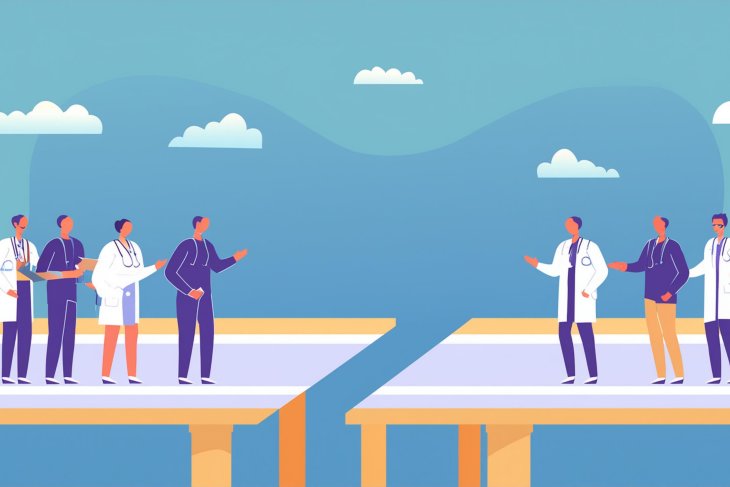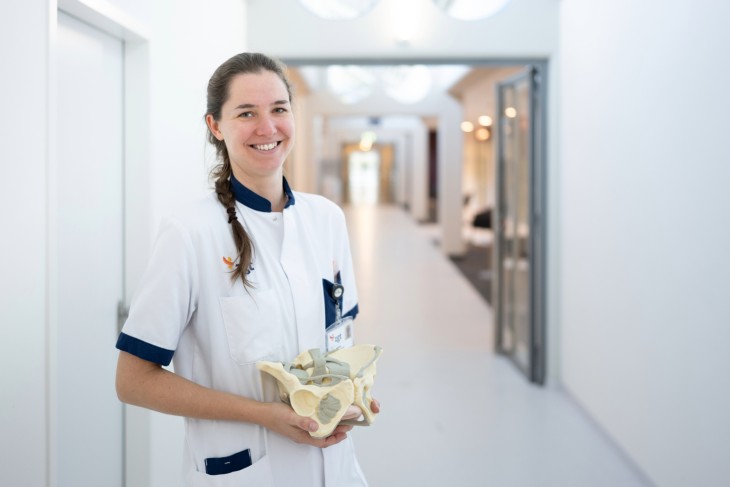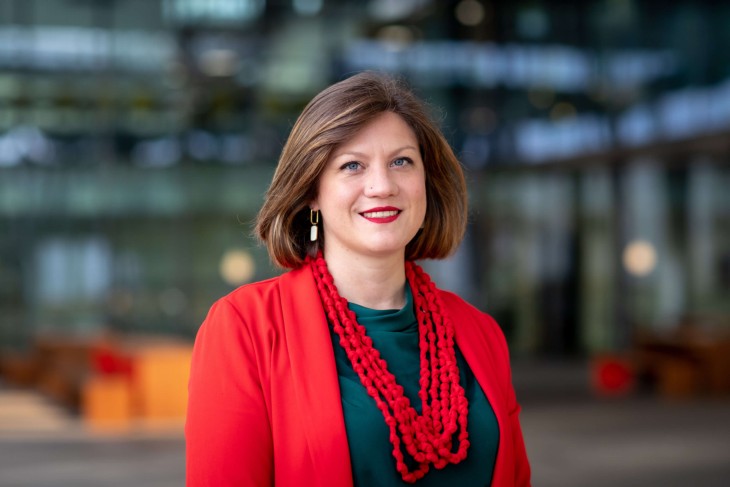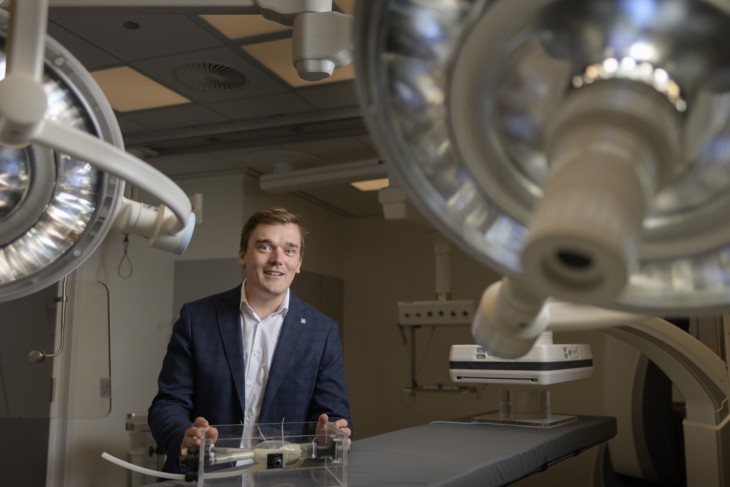Bridging healthcare by sharing personnel
Higher workload, a shortage of healthcare personnel, and a growing demand for care are three bottlenecks that many healthcare organisations are struggling with. It is often difficult to quickly provide the care that patients need, especially in sparsely populated border areas. In collaboration with Acute Zorg Euregio, NovioQ, the University of Münster, the University Hospital Münster as well as hospitals in the Netherlands and Germany, the University of Twente is working on a platform that will enable the pooling and sharing of personnel across the border.
“The main goal is to pool and share medical personnel to avoid burdening patients with travel. For instance, a family with a sick child shouldn't have to travel 100 kilometres for treatment. By focusing on sharing staff between hospitals, we can alleviate this issue, which hasn't been done much before,” says Dr.ir. Gréanne Leeftink, assistant professor in Industrial Engineering and Business Information Systems at the University of Twente, who has been conducting research into healthcare process optimisation for 10 years.
Balancing healthcare surges
“When there is a surge in patient care in the Netherlands, there might not be the same surge in Germany, and vice versa. We aim to balance this out not just for extreme situations, such as those seen during the COVID-19 pandemic, but also for regular fluctuations in care needs," Leeftink explains.
“Imagine a small hospital in a less densely populated area near the border where the only paediatrician is sick. In such a case, exchanging staff can help, and a paediatrician from another hospital can come over for a day. Or suppose a hospital urgently needs an ICU nurse, and in a nearby hospital one isn't too busy at that moment, so the hospital can lend their ICU nurse to assist. The capacity-sharing platform we are building will show the real-time availability of doctors and nurses, making the sharing of personnel easier and less dependent on personal networks and constant calls. For patients, this means faster access to specialist care, and shorter waiting times,” Leeftink adds.
Public health doesn't stop at the national border
A lot is already happening in the Dutch-German border region. “Ambulances and helicopters are crossing the border, and patients are going to hospitals in the other country when needed. These exchanges, however, especially for emergencies and acute pediatric care, are organised separately and rely on individual agreements. We need a more systematic and coordinated approach, and this is what we are working on,” says Dr. Caroline Fischer, assistant professor in Public Administration and Digital Transformation at the University of Twente and the leader of the BRIDGE consortium.
Wouldn’t logistics be a main hurdle? Fischer doesn’t think so: “For example, many people working at the MST hospital commute from places closer to German hospitals than to Enschede. Travelling from Enschede to Münster takes about an hour, which many healthcare professionals already do regularly. So for them, it is a matter of commuting and figuring out reimbursement.”
There is a need to develop better governance mechanisms that enable hospitals on both sides of the border to share resources. "Understanding the rules and agreements that help or hinder hospitals in sharing resources is key. We need to design effective governance mechanisms that make it easier for hospitals to work together and engage in meaningful conversations," says Dr. Le Anh Long, assistant professor in Public Administration at the University of Twente. "We are taking a holistic approach, considering resource pooling from 360°, including legal issues."
Overcoming challenges
According to Fischer and Leeftink, the main roadblocks aren’t logistical or legal but practical and administrative. Cooperation is complicated due to individualised hospital agreements, insurance constraints, and the need for diploma recognition. For instance, Dutch nurses need to go through a lengthy process to get their qualifications recognised in Germany, and it is even more complicated for German nurses who want to come to the Netherlands. “We are working to reduce this administrative burden and create a platform that makes cross-border collaboration easier, eliminating the need to reinvent the wheel each time.”
Project BRIDGE, which is funded by Interreg Germany-Netherlands, is in its initial phase. "We are currently focusing on analysing and simulating what is feasible. Over four years, we are going to address practical and administrative barriers, develop a user-friendly platform that integrates with existing hospital systems, and pilot its implementation in selected hospitals. The platform will share capacity data: doctors' and nurses' availability and if there is space for more patients,” Fischer says.
“A main challenge will involve introducing the platform to the hospitals and ensuring its usage. It will be futile if the platform just sits there without being used,” Leeftink adds. “That’s why we will closely monitor its usage, identify any issues the hospitals might encounter, and address them on time.”
“Our ultimate goal is not just to create a platform, but to see it effectively used to sustain and improve access to specialist care for patients across the Dutch-German border.”




